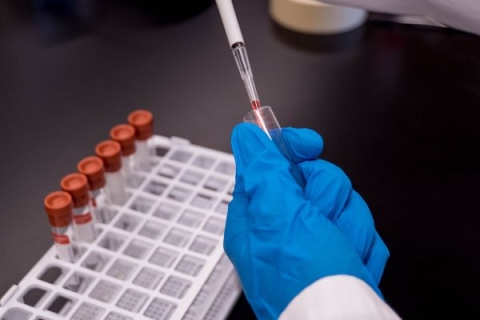

The aim is to reduce long-term pain and disruption of healing for wounded soldiers
28 February 2020
2 min read
In modern armed conflicts, the wounded are far more numerous than those killed. New research by the University of Portsmouth aims to provide better treatment for blast injuries suffered by soldiers in combat. These injuries can cause surrounding muscle tissue to harden (calcify), which impedes healing and can lead to long-term pain and disruption of muscle movement.
The project arose from the team’s research into Duchenne muscular dystrophy (DMD), an inherited disease characterised by progressive muscle wasting and sometimes calcification (hardening). Working on treatment for DMD, researchers found a new drug that can lessen the symptoms. Their aim now is to see if the same drug can also help muscles of those severely injured on the battlefield.
Here we have a material which potentially is much more sustainable in terms of how it’s sourced and made, and at the end of its life can be biodegraded.
Dr Robin Rumney, Senior Postdoctoral Research Associate in the School of Pharmacy and Biomedical Sciences at the University of Portsmouth
The team has been awarded £99,982 from the Defence and Security Accelerator, part of the Ministry of Defence, to discover whether using this drug can be a game-changer preventing muscle damage and helping regeneration. This funding is part of the Regenerative Medicine at the Front Line programme.
Dr Robin Rumney says, “This research is of great importance for serving troops because it could prevent lasting damage and disability. Next, the team of researchers shall apply for the next tier of funding that will increase the technology readiness level and deliver this treatment to the front line to enhance wound healing of military personnel.”
